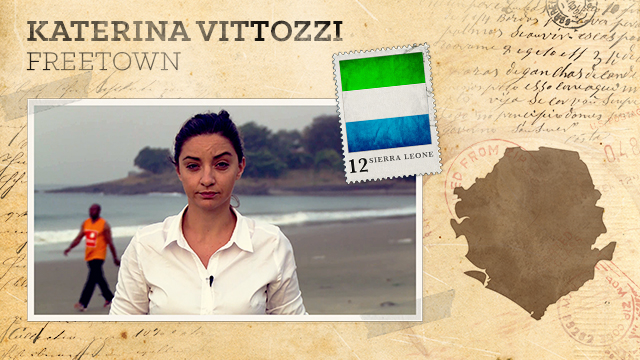In West Africa, nine months of dealing with the Ebola outbreak have severely impacted the region’s economy. Sectors that were showing signs of growth, like tourism, have been hit hard especially in the Sierra Leone, Liberia, and Guinea, the three countries most affected by the virus. CCTV America’s Katerina Vittozzi reported this story from Freetown, Sierra Leone.

With its palm trees and pristine white sand beaches, Sierra Leone was the growing darling of West African tourism.
“But during Ebola, unfortunately, everything has turned 360 and our numbers are at zero as far as tourism goes,” Abimbola Carrol, managing director of Visit Sierra Leone said.
Countries across the region are facing the same problem, even those not affected by the outbreak. Hotels and resorts across West Africa are reporting lower than average numbers for their peak season.
Ebola isn’t just chasing away tourists. The virus has scared away some international investors, especially in flourishing sectors like mining, agriculture and oil production.
In Liberia, the world’s largest steel and mining group, ArcelorMittal, had to put expansion plans on hold after contractors building a new site pulled out of the country because of Ebola. But unlike other international businesses, ArcelorMittal was determined to stay put and keep up its iron ore production.
“We also realize that, with what we are doing in Liberia, the economic impact if we were to stop the operation. Also you think about the workforce, so many employees, families that depend on the company for their day to day survival. So as long as we continue to make sure that we are keeping our employees safe, we feel that we can continue,” ArcelorMittal spokesperon Hesta Person said.
The World Bank said the best way to woo back business is to get the Ebola outbreak under control.
The World Bank said Ebola has cost these three countries $2 billion in lost income, and that’s not taking into account the losses faced by their regional neighbors. With growing unemployment and rising inflation, leaders hope the region’s economic health rebounds in 2015.
 CGTN America
CGTN America
